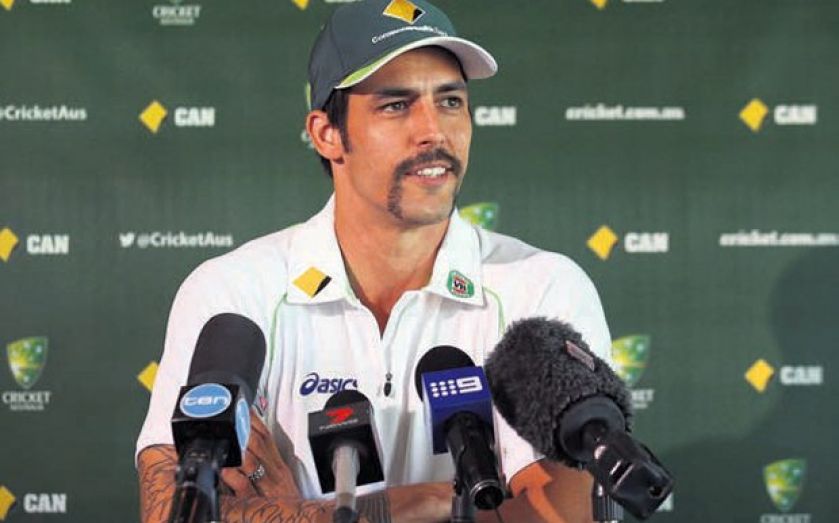England are rattled, taunts Johnson

AUSTRALIA fast-bowler Mitchell Johnson says England have been rattled by the hosts’ aggressive approach and believes further sledging is the key to his side’s hopes of reclaiming the Ashes.
Johnson also rejected suggestions from England coach Andy Flower that the two teams might discuss toning down the hostility, following a fractious first Test that Australia won by 381 runs on Sunday.
“I think it’s worked for us,” he said. “I definitely think they’re rattled by it. They don’t like it at all. Their coach has come out and wanted a truce from what I’ve heard. That’s not going to change from our end.”
Aussie captain Michael Clarke earned a fine for X-rated barbs towards England’s James Anderson in Brisbane, but Johnson praised the outburst as a warranted act of retaliation.
“I thought it was really good what Michael did, as a captain,” he added. “That’s what you want your captain to do – stand up for the players – and that’s what he did. It just happened to be that the stump mic was up at that time. It’s nothing unusual, but I was really happy with how he stood up for the team.”
Johnson wished Jonathan Trott well, after the England batsman abandoned the series immediately after the first Test because of a stress-related illness, a setback team-mate Stuart Broad called “heartbreaking”.
“He’s been part of the side for four or five years, he’s a fantastic guy,” Broad added. “The important thing is he’s got the support of the changing room he has played with for 49 Tests.”
Broad joined coach Andy Flower in condemning Australia batsman David Warner’s personal criticism of Trott, which came before his condition was made public, but backed the hosts to carry on sledging in next week’s second Test.
“I think the on-field stuff has been fine. You’re playing in an Ashes Test match, you expect it to be tough,” he said. “I grew up hearing all sorts of stories about sledging, and on-field I don’t think a line’s been crossed. Off the field, there have been some mistakes made. We pride ourselves on how we conduct ourselves when talking about the opposition.”